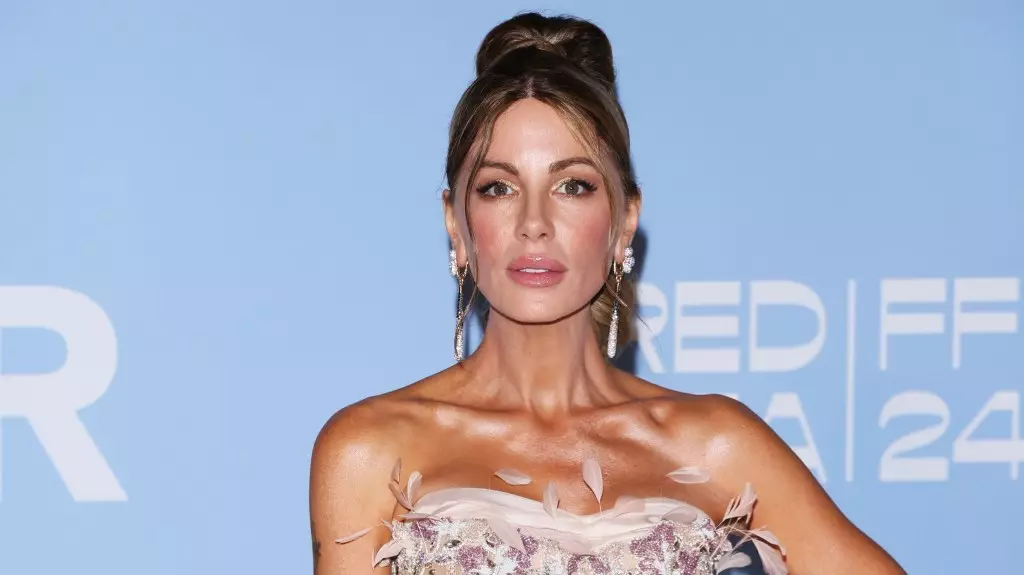In an era where conversations about gender equality and workplace harassment are crucial, Kate Beckinsale’s recent revelations provide a stark reminder of the enduring misogyny present in Hollywood. Through a candid Instagram video, the actress bravely shared her personal experiences with systemic sexism, shedding light on the often-ignored struggles faced by women in the industry. Her commentary emerged following the controversial incident involving Blake Lively and Justin Baldoni, igniting a renewed discourse on the pervasive nature of misogyny in film and television.
The video, which spans nearly five minutes, emphasizes Beckinsale’s stance on the intrinsic mechanisms that shroud women’s voices when they speak out against harassment or violence on set. By spotlighting these issues, Beckinsale not only recounts her personal narratives but also evokes the shared struggles of countless women who have encountered similar or worse circumstances in the industry.
Among the troubling anecdotes Beckinsale shared were painful memories from her early career, including an incident of assault at the tender age of 18. This early trauma is compounded by the dismissive attitudes she encountered from two female colleagues, showcasing a disheartening level of complicity among women in positions of power. Beckinsale’s experience serves as a reminder that sometimes, women in the industry may perpetuate a culture of silence and complicity, inadvertently sidelining those who bravely speak out.
Perhaps the most harrowing of her accounts was being pressured to do a photoshoot immediately following a miscarriage—a situation that underlines the heartless nature of industry expectations regarding female bodies. It reveals a controversial truth about Hollywood: the relentless prioritization of image over well-being, often leading to emotional and physical exhaustion among actresses. Beckinsale’s harrowing recollection serves as a cautionary tale of the price of fame.
Beckinsale’s experiences extend into the realm of body image, where she describes being subjected to extreme scrutiny regarding her looks. She recounted instances where she was placed on stringent diets, resulting in health issues such as losing her menstrual cycle, a serious consequence that speaks volumes about the unhealthy beauty standards upheld by the industry. This obsession with appearance cultivates an environment of anxiety and self-doubt among actresses, compelling them to conform to unrealistic ideals.
The actress also revealed her unsettling experiences with male co-stars in demanding physical roles. She recounted narratives of unsafe fight sequences, wherein male actors derived a harmful thrill from reckless performances, potentially jeopardizing her safety. The industry’s apparent apathy towards these situations reflects a grim reality where women’s safety is often compromised for the sake of dramatic entertainment.
One of the most poignant issues Beckinsale reiterated was the culture of gaslighting and isolation that many women face when they voice their grievances. Instead of receiving support or acknowledgment, victims of harassment are often met with blame and ostracism—a cycle that perpetuates silence. Her testimony sheds light on the emotional toll this takes, emphasizing the detrimental impact on women’s mental health and career trajectories.
Beckinsale connected her personal experiences to broader systemic issues in Hollywood, successfully framing her trials within a larger narrative of entrenched sexism. She criticized the men who claim that the landscape has significantly improved, asserting that the fundamental problems remain omnipresent. This acknowledgment calls us to reckon with the fact that despite some incremental changes, a significant culture of harassment and marginalization persists under the veil of progress.
In sharing her story, Kate Beckinsale has not only reclaimed her narrative but has also extended an invitation for change within the industry. By illuminating the systemic problems many women endure in Hollywood, she has encouraged a much-needed conversation about the necessity for accountability and reform. The time has come for the industry to confront its dark secrets and support those willing to break the silence. As women continue to rise and make their voices heard, industry leaders must advocate for a safer and more equitable environment for all. This imperative call to action resonates deeply, urging us all to contribute to a culture of understanding, respect, and empowerment.
